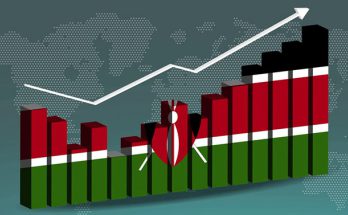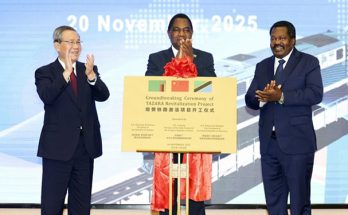 Tanzania’s President John Magufuli does not need any more opponents than he already has. Since taking office, he has contended with critical journalists, lazy officials and the European Union. The temperamental president, nicknamed “bulldozer” by the people for his strict leadership style, is now targeting foreign mining companies.
Tanzania’s President John Magufuli does not need any more opponents than he already has. Since taking office, he has contended with critical journalists, lazy officials and the European Union. The temperamental president, nicknamed “bulldozer” by the people for his strict leadership style, is now targeting foreign mining companies.
“We must profit from our God-given mineral resources,” the president said at a rally last month. His parliament made good on his words: At the president’s initiative, a new mining law was passed. In future, foreign companies will have to pay higher taxes. Their operations in the country must be 16 percent locally owned. Existing agreements with the government will be allowed to be renegotiated.
What is more, the British mining company Acacia is in trouble with local financial authorities. It is accused of deliberately downgrading its gold exports in the past to save on taxes. The group asserts that it was not aware of such practices and says it is cooperating fully with authorities. To no avail: Foreign employees are currently not being granted new visas.
Harsh allegations against corporations
New mining licenses for other companies will be given only when “things are in order,” Magufuli said. This is expected to be well-received by the people. Tanzania is the fourth-largest gold producer in Africa, but almost no one in the country benefits from the fact: One-third of the population lives in poverty.
In other parts of Africa, too, there is growing pressure on foreign companies. “It is unfortunately a populist line that many African governments have tried to follow,” Ross Harvey from the South African Institute of International Affairs told DW.
He describes the tack they take as follows: “The country is not benefitting sufficiently from mining; mining is […] simply extracting resources and repatriating profits elsewhere, [leaving] the country with nothing but a hole in the ground and no socio-economic benefits.”
This has consequences for the industry. Zimbabwe’s government wants to seize nearly 28,000 hectares (69,000 acres) of land belonging to a subsidiary of the South African mining company, Impala Platinum. The case is currently before the court. In South Africa, the government has ruled that 30 percent of shares in all mining companies must be in South African hands. Until June, that figure was 26 percent.
Experts can understand some of the measures. In some countries, foreign companies have to pay lower taxes on mineral resources than is customary today because they are still benefitting from old contracts, Robert Kappel of the GIGA Institute of African Affairs told DW. As long as world market prices remained high, African governments earned good money despite the low taxes, thanks to export charges.
But those times have gone. “The prices of raw materials have been declining for years, which is why the tax on profits from the production of raw materials has fallen in the respective national budget,” Kappel said. Because their source of income has been interrupted, many African governments are now kicking into gear.
Little likely benefit to the poor
But higher tax revenues would not necessarily benefit the poor, Kappel said. “What governments do with their tax revenue is up to them. If you look at the budgets of most countries, there is not much money to help improve the situation for the poor populations.”
Even economics expert Ross Harvey says it is right for African countries to renegotiate some contracts. But he is critical of the way they are going about it. “Fighting this battle in a populist, public way through the media and through very random impositions, like an export ban introduced overnight, does not install confidence.”
And the countries need mining companies despite all. In South Africa, for example, more than 70,000 jobs within the mining industry have been lost in the past five years. This comes as the country is already suffering from a high unemployment rate.
Instead of hasty symbolic politics, governments should quietly negotiate with corporations, Harvey says, pointing to what he sees as positive examples in Burkina Faso, Namibia and Kenya.
“They [African governments] understand they need foreign investment, but also that their countries need to profit in the long term,” Harvey said.
Kappel, in his turn, says that governments should insist that people in the regions where the mines are located profited in a practical way.
“There are many way to get companies to do something for infrastructure, health care and the education system in their production areas. There are already countries that have written that into their contracts,” he said.



